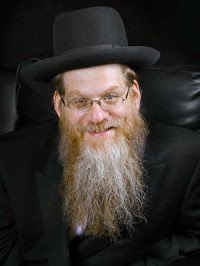When I heard he was in the hospital I asked the family if I could come right away.
They told me to wait.
In the morning, I hurried to the hospital.
At times like these I appreciate being a rabbi as I’m allowed entry before visiting hours. As I entered his room I was surprised by how he looked; tired, spent, very different from how I remembered him from two weeks before. His spirit was subdued, his voice mellow and weak. I had no idea how the disease had spread so quickly.
When I first approached, his eyes were wide open, yet he didn’t notice me. He was staring right at me, but clearly somewhere else.
When he did notice me, he asked me to sit down. He asked me to remind him what time of day it was. He wanted to know when Shabbos (Sabbath) was. He was concerned for his father’s yahrtzeit (anniversary of passing) and if he would be able to say the Kaddish prayer for him.
He looked so helpless and so feeble.
He adjusted his oxygen tube and began to speak in a whisper.
“So difficult to be here; I have lost the ability to take care of my basic human needs. I am reliant on the goodness of others to do for myself that which every child can do. The men in Hatzolah [volunteer ambulance corps], fellows who before last night I never even said hello to in shul, they saved my life. How appreciative I am and how appreciative I should have been before I got into this state. I failed to appreciate what I had.”
There was a silence in the room as the conversation drifted away and my friend drifted into sleep.
I stood to leave and his eyes fluttered open.
As I looked into his eyes, I saw his helplessness and his worry and a rush of memories went through me.
I saw my friend sitting across from me as we probed the meaning of a beautiful piece of Talmud.
I saw my friend laughing with me as we both realized how comical a situation really was.
And most of all I recalled my friend just being there for me; just being my friend.
I struggled for the right words.
I recalled how many former patients complained of people saying the wrong things just because they had nothing to say and felt like they had to say something. I remembered one man telling me how someone burst out and said, “You look so different than you did just one week ago!”
And I remembered a woman telling me how one visitor said to her, “Oh, you use Dr. P.? My mother, of blessed memory, made the same fatal mistake.”
I still ache when I think about how many former patients told me how hopeless, helpless, and violated they felt when visitors would casually read their medical charts and with wide-eyed shock exclaim, “Oh, they put you on ______? You must be pretty sick; that’s one powerful drug!”
Finally, I said, “My friend, please get better. However, I cannot lie. I don’t mean this just for you; I mean it very selfishly. Please get better for me. I miss you and I need you.”
He looked up and I saw there were tears in his eyes.
Through his half-closed eyes he whispered, “That is the most sincere and heartfelt feeling anyone has said to me. I know when you said I should get better for your sake that you really meant it. That is the most meaningful sentence someone has ever said to me. I should get better for you.”
His eyes gently closed, and as I silently slipped out of the room, I wiped the tears from my eyes.
More Inspiration:
• Paid in Full
• How a hut inspired humanity
• Past Present
Rabbi Ron Yitzchok Eisenman is the spiritual leader of Congregation Ahavas Israel in Passaic, N.J. He's also a columnist for Mishpacha magazine, where this column first appeared.


 Contact The Editor
Contact The Editor
 Articles By This Author
Articles By This Author